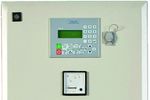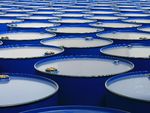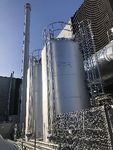Alfa Laval on board - CIMAC
←
→
Page content transcription
If your browser does not render page correctly, please read the page content below
Alfa Laval on board
− 17 000 employees, sales USD 4 billion, 42 major production units, more than 2500 patents
Steam and hot water
Waste heat
recovery
production 17 Product groups
Thermal fluid heating systems
EGR water Heating and cooling
treatment
Desalination
Exhaust gas Ballast water treatment
cleaning
Inert gas system
Crankcase
Gas
gas cleaning
combustion
Oily waste
treatment
Cargo
Fuel conditioning
pumping
Filtration
Oil cleaning Tank cleaning
23/06/2021 | © Alfa Laval 1 | www.alfalaval.comTreatment of Biofuel on board – Do’s and don’ts
− Apply your Fuel treatment as you do since January 2020
• Biofuel is for all practical purposes Fuel
• All precautions taken for the 2020 Low Sulphur regulations apply
Do’s Dont’s
• Have a Fuel Management Plan in place • Mix fuels in the same tank
• Dewater the tanks at all times • Store biofuels for a long time – use them as
• Store at the right temperature soon as possible.
• Store it too cold or too warm
− Too cold: Wax may appear
− Too warm: Oxidation, polymerisation and general
bacterial growth increase significantly
23/06/2021 | © Alfa Laval 2 | www.alfalaval.comBiofuel and Fuel equipment
− Potential effects of Biofuel on components inside the equipment
Negative properties of FAME compared to FO/GO
• Equipment must handle the increased corrosiveness
• The FAME itself can be oxidized by the materials used in the equipment
What to think about when considering the process equipment?
Metals • Bronze, brass, copper, lead, tin, and zinc may oxidize FAME
• Swelling and aging of materials can lead to leakages and
Seals & malfunctioning of equipment
Gaskets • Research by Alfa Laval shows that this phenomenon is not
significantly worse than for residual fuels
Polymers • Potential swelling of polymers might affect its material properties
Alfa Laval recommends to check with suppliers of sub equipment
23/06/2021 | © Alfa Laval 3 | www.alfalaval.comCold flow properties of Diesel Oil
− Challenges with distillates.
Cold Flow properties are typically related to distillates – residual fuel has to be heated to lower the viscosity.
Typical cold flow properties (from low to high temperature):
• Pour Point (PP): The lowest temperature fuel flows (pumpable).
• Cold Filter Plugging Point (CFPP): The lowest temperature fuel passes a filter.
• Cloud Point (CP): The lowest temperature wax crystals appear. Cloudpoint can
also be expressed in WAT (Wax Appearance Tempeture).
Treating cold flow properties:
• CFPP or CP is known Keep the fuel above CP or use it before the ambient temperature drops below CP.
• CFPP/CP is unknown Rule of thumb is to keep fuel at least 10°C above the PP, but not higher than 40°C.
• If filters blocked Heat them up (tracing).
The conondrum with FAME:
Heating will accelarate the oxidation process
23/06/2021 | © Alfa Laval 4 | www.alfalaval.comHVO treatment in the separators
− Handling the low density
Separators – both traditional purifiers as well as automatic separators - are typically
designed for densities higher than 800 kg/m3.
Traditional purifiers
The ‘largest’ available gravity disc can be too small
The purifier will act like a pump – not cleaning anything
Solutions
Verify with the purifier supplier if it is possible to run on HVO – is the gravity
gravity disc that is ’large enough’ to properly process HVO
Set the purifier up as a clarifier with the clarifier disc. Warning: Water
removal limited.
Automatic separators
If water is present in the tank and is caught in the separator, it will not reach
the water removal device if fitted (paring tube/heavy phase paring disc).
Alarms will occur if the heavy phase isn’t pressurized or if water cannot be
removed.
Solution
Set the system up as a clarifier – program modification may be needed.
23/06/2021 | © Alfa Laval 5 | www.alfalaval.comInvestigations into Biofuels
• BTL – Biomass to Liquid is being researched in the Alfa Laval
Marine Test Center in Aalborg. Preparations are ongoing.
• Various small scale laboratory tests for the suitability of the
current equipment with FAME blends have been carried out, and
various field trials are ongoing. The results are very promising and
improvements are made over and over again.
• Alfa Laval has produced a Whitepaper on Biofuel which can be
found at www.alfalaval.com/fuelline
23/06/2021 | © Alfa Laval 6 | www.alfalaval.comThank you very much
for your attention
remco.dewitte@alfalaval.com
www.alfalaval.com/fuelline
Alfa Laval
Don’t just comply – be a step ahead
www.alfalaval.comYou can also read



























































